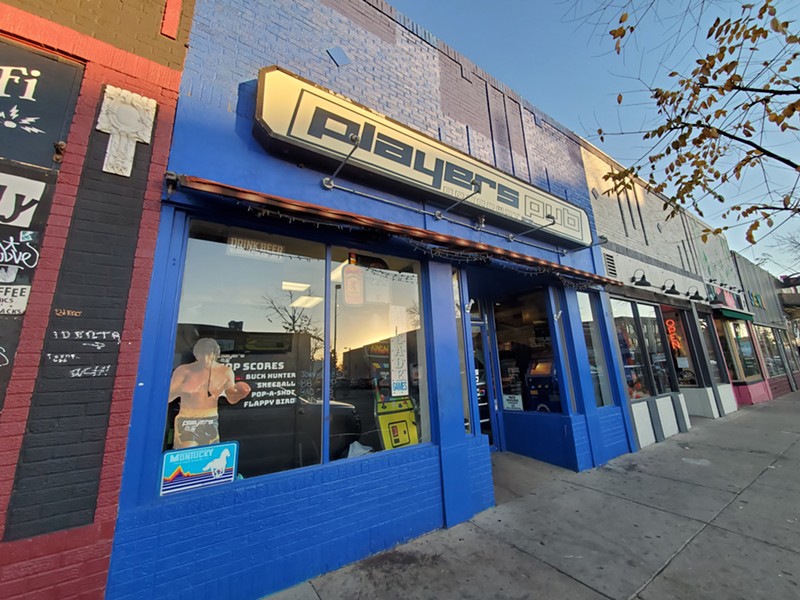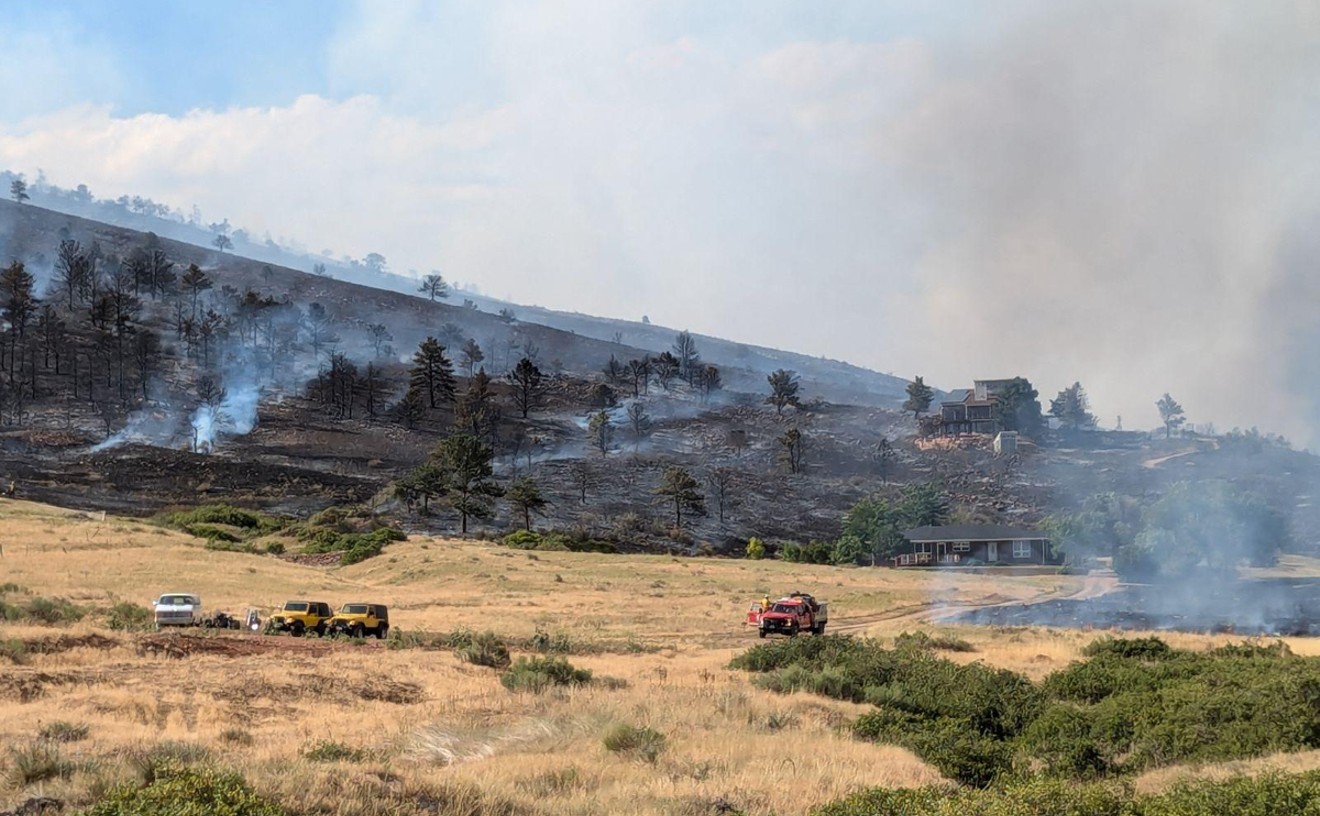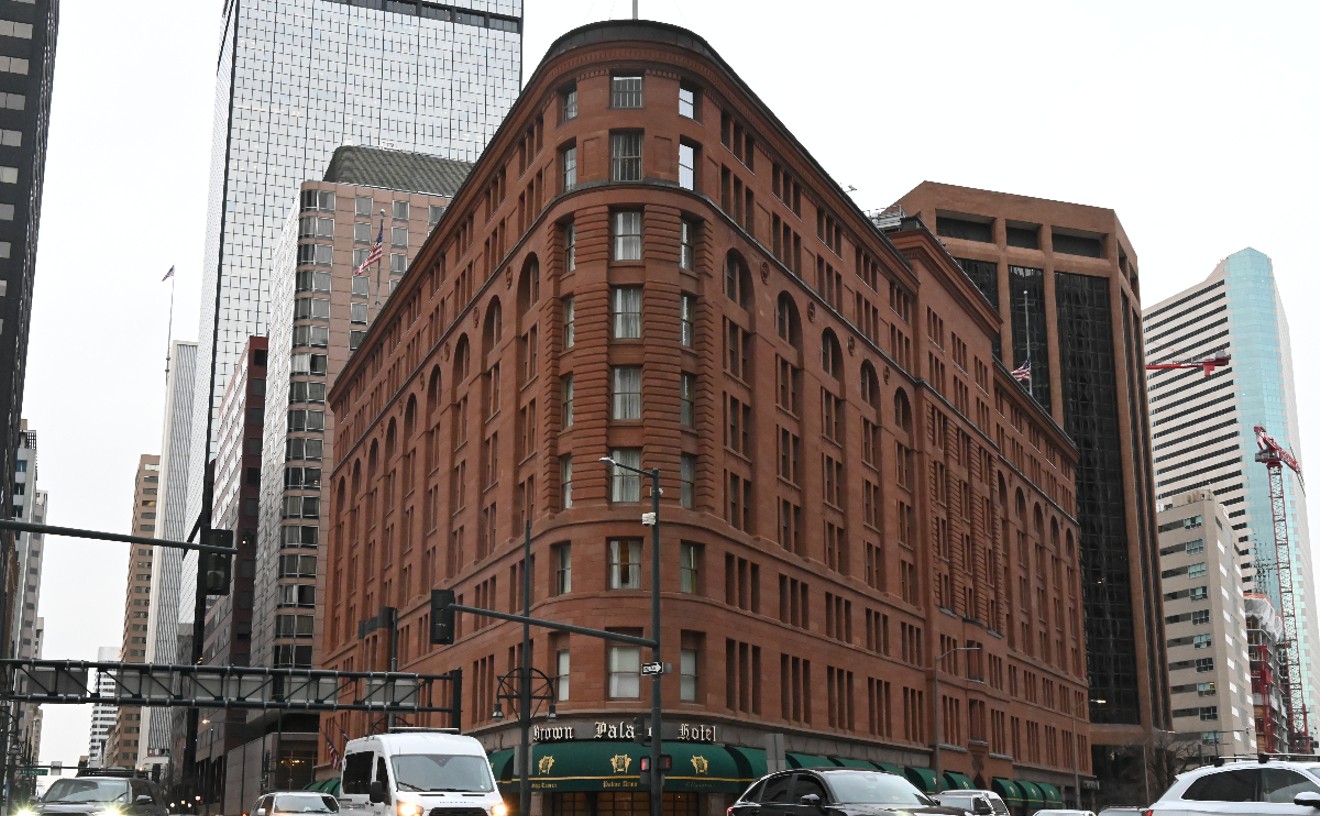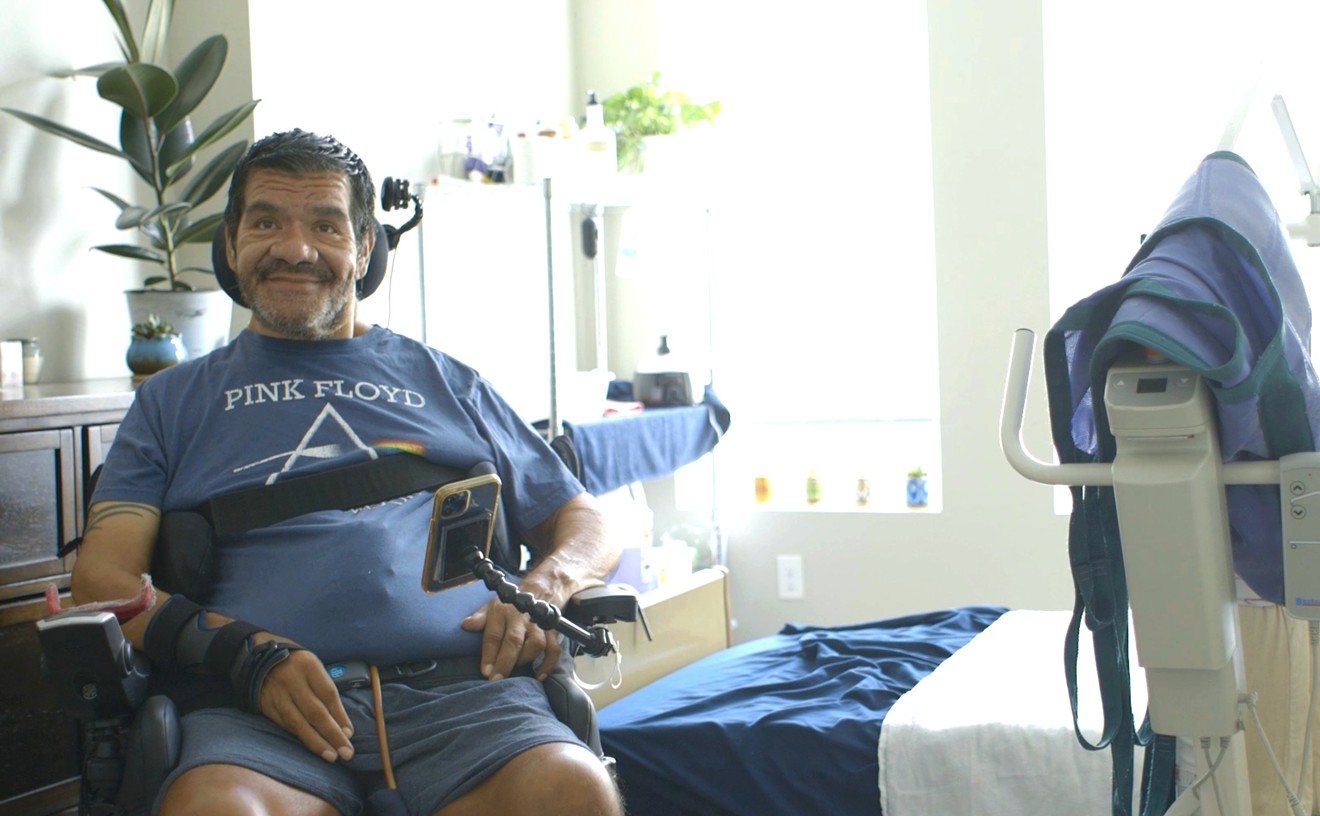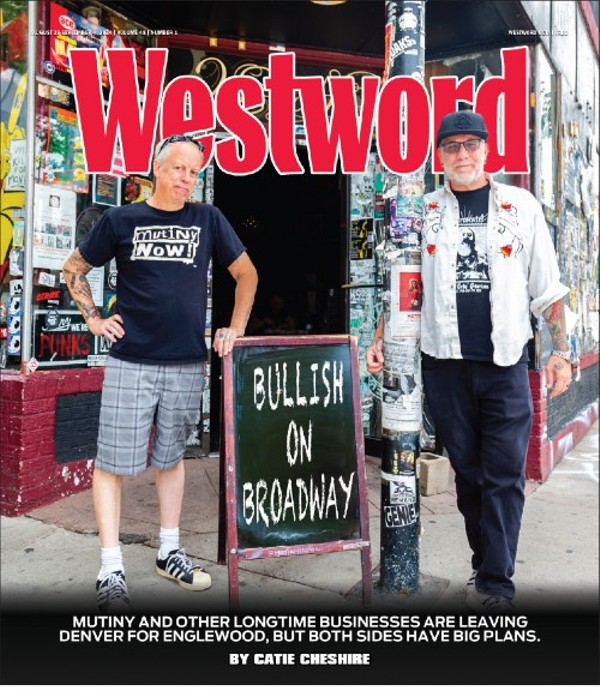According to Moore, outages have caused him to lose five days of business, to the tune of around $3,000 each day. One outage where the power was out for the better part of two days meant he had to throw away half of his inventory. Moore, who ran Deluxe and Delite before Moxie, is used to the challenges of running a kitchen, but inconsistent electricity isn't one of them.
“The margins are so difficult for restaurants right now,” the longtime Denver restaurateur says. “So it’s not helpful to have some other things going on. It sucks.”
Moxie isn’t the only one dealing with persistent power outages: Every business and resident on the west side of Lincoln Street and east side of Broadway from Bayaud Avenue to Third Avenue has experienced twenty power outages in the past twenty months, including wind-related outages in April that resulted in Xcel Energy being called out by Governor Jared Polis for poor communication with customers.
In June, July and August, there were three outages per month on four blocks of Broadway and Lincoln, with residents and business owners reporting no power for at least four hours, if not longer.
“Last year was a little bad, but this year has just been really unbearable,” says Blake Davis, who has lived in a condo on the 200 block of Lincoln for a decade.
Davis says he and his neighbors constantly question when the next outage will be. It’s tricky to enter and exit their building when the power is out because their garage has electric doors, he adds.
At Pie Hole on 44 South Broadway, the business model depends on having pizza slices ready for late-night revelers in need of a quick bite. Although the spot is open for lunch, most of its business comes at night, according to manager Christian Jensen. But when the street goes dark, the nighttime foot traffic decreases and Pie Hole loses substantial dollars.
Jensen says the pizza parlor has a generator that will keep the register running for an hour, so Pie Hole can still sell pizza that was already prepared by reheating slices in the gas-powered oven. But when the food runs out, staff has to clean up in a pitch-black kitchen, and the rest of the day’s business is gone.
“When this happens, and if [electricity] doesn't come on within an hour or two, we have to toss out a lot of product, which gets expensive,” Jensen says.
The cheese to make pizzas and meat toppings come at a particular cost and are most vulnerable to spoiling without refrigeration, Jensen notes. He also feels for his staff, who have their shifts cut short or canceled whenever an outage happens.
“Restaurant industry workers are very much by-the-hour and work for tips,” he says. “If they get two hours to work on a shift, then they don't make any money and they don't get any tips.”
Caitlin Braun, who works at Players Pub, at 8 South Broadway, says she and her co-workers now assume they won’t be able to open once a month because the power will be out.
“It's just endlessly frustrating,” Braun says. “From the business perspective, to lose a whole day of sales or more each month is frustrating — but also, a lot of industry workers are day-to-day or check-to-check, and to lose a whole shift of tips is money out of their pockets that they might really be relying on.”
Safety Risks During Power Outages
At Players Pub, the staff usually doesn’t take out the trash on nights when the power goes out because the alleyway between Lincoln and Broadway is dark. However, leaving spoiled food like meat and cheese attracts pests and vermin, Braun points out.“It’s leaving people vulnerable,” Braun says of the constant outages. “It needs to be eliminated, for the safety of pedestrians, businesses, people getting home at night.”
When the power goes out, the traffic lights on the street also usually go out, posing risks to drivers and pedestrians. The city can turn the lights to blink red during outages, but the outage must first be reported, so there’s always a period without signals, Braun says.
Marlene Nuechterlein and her husband have lived in the impacted area for 32 years. According to Nuechterlein, regular outages since last year have put their health at risk, as both use CPAP machines to sleep at night. She also uses oxygen at times.
“When the power goes out, I literally can't sleep because I can't lay down,” Nuechterlein says. “Otherwise, I won't be able to breathe. Any of these times when the power is out all night, I don't sleep, and then it seems like it takes days to get back to normal.”
She believes Xcel Energy, Denver’s power provider, needs to upgrade its infrastructure to protect people who depend on medical equipment. She and her husband have lost countless groceries to the outages, she says, but the biggest cost has been the $600 generator they had to buy once the outages became commonplace.
Nuechterlein signed up for Xcel’s program that identifies customers who rely on electrically powered medical equipment, but she says she hasn’t seen any difference in how Xcel handles power outages in her home.
“I don't want to say that Xcel doesn't care, but it feels like their attitude is just like, ‘Oh, well, deal with it,’” she says. “It even says on their website to make sure you have a plan in place for when the power goes out, have batteries. Well, those are expensive.”
Dirk McCuistion is also worried he could lose out on a significant amount of money if Xcel doesn’t fix the problem. The local developer is in charge of the 70 Broadway building where Moxie sits and is currently planning to redevelop the parking lot behind Parlor Doughnuts at 95 Lincoln Street into a seven-story building with housing and retail space — but he’s concerned that the $85 million investment literally won’t be able to keep the lights on when it’s completed.
“My number-one management problem is that the power grid goes down a lot,” McCuistion says.
He says he’s spent thousands of dollars on maintenance for compressor motors at 70 Broadway that have been worn down by the outages. When the HVAC system goes down because of outages, that also creates unsafe conditions for staff at the impacted buildings, like workers at Moxie who have had to close up in very hot or cold conditions multiple times because of a lack of power.
“We're trying to bring more housing to the neighborhood and more retail space to the neighborhood, but I'm not sure that the grid has the capability to support our building,” McCuistion says.
He’s reached out to Xcel and the Colorado Public Utilities Commission, which regulates the energy company. McCuistion reports that Xcel was not helpful and that the PUC has not responded to him yet.

Dylan Moore serves up lunch orders at Moxie, where power outages have cost the restaurant around $20,000 in lost food and revenue.
Danielle Lirette
Are Squirrels Causing Power Outages on Broadway and Lincoln?
When Xcel responds to residents, they’ve been just as unhelpful, Davis reports. He’s been told multiple times that the constant outages are due to squirrels chewing through power lines. “I could believe once or twice that that's happened, but if that was true, then all the squirrels one block to the east, one block to the west, one block to the north and one block to the south would probably be doing the same thing,” Davis argues. “I'm pretty sure we don't train the squirrels in our four blocks any different than the squirrels in the surrounding neighborhoods. We don't have kamikaze squirrels.”
Xcel spokesperson Tyler Bryant confirms that Xcel has recorded ten sustained outages on these four blocks since January.
“Of those ten, four were caused by animal contact, three were caused by equipment failure, and one was weather-related,” Bryant says. “We also had a 28-minute outage for planned construction in the area. A cause was not found for the most recent outage, but crews did replace fuses in the area to help alleviate any further equipment-caused outages.”
Business owners are interested in any compensation Xcel might be able to provide for lost revenue or inventory. But Braun says that when she looked into it, the form required itemized receipts, which wouldn’t be possible to provide for lost business or ruined bits of bulk inventory.
Jensen says his business insurance helped recuperate the costs after the April outage, but Xcel didn’t offer support. Moore has less hope for any refunds.
“I didn't even bother,” Moore says. “I just don't think it's worth the brain damage. …I just know that they're not going to do anything, so why even try?”
Bryant says that while Xcel understands that outages “affect livelihoods and businesses,” company policy is not to reimburse customers for spoiled food lost in outages. However, if anyone believes they have a good case or an exception, then they can file a claim online, he adds.
Since impacted customers haven’t been satisfied with Xcel’s response, the Lincoln/Broadway Corridor Registered Neighborhood Organization has organized a letter-writing campaign to both Xcel and the PUC to prompt action. The letter asks the PUC to require Xcel to immediately upgrade its electric infrastructure in the area.
According to PUC spokesperson Katie O’Donnell, Xcel likely hasn’t been required to report many of these outages: the utility provider only has to tell the PUC if an outage impacts a larger number of customers or is extremely long. However, the commission will be able to see the outage data in Xcel’s annual report.
“That being said, when the wildfire power outage happened in April, our PUC commission took it up as a communication issue and a follow-up issue for how those types of outages are handled,” O’Donnell says.
Xcel’s upgraded wildfire mitigation plan is slowly making its way through the PUC process, but that can take 260 days or more, so the commission also required Xcel to make a gap plan to improve communication for planned outages after April's long outages across the Front Range. However, O’Donnell says the outages on Broadway likely wouldn’t be covered by the new communication standards, as they generally haven’t been planned.
Even if Xcel isn’t required to communicate, residents and business owners hope the company will be better about acknowledging the problem.
“Keeping us updated on the process would help alleviate a lot of frustration from people who don't feel like they have a clear answer and that there's no plan for this to get better,” Braun says.
O’Donnell says the PUC still hasn’t finalized rules for the gap communication plan, so she encourages people to continue to file complaints through the PUC website to make sure the commission knows there’s a problem.
“The ultimate hope is that they would look at their own data, look at the comparison to where else they are investing to upgrade infrastructure and say, ‘We need to make this place next,’” Davis says.
Moore lives just a block from Moxie, but on the side of Broadway that isn’t impacted by outages. The outages have definitely affected business, he says, especially since customers don’t understand why the east side of the street is closed down when the west side is still open.
“I can look across the street, and the Punch Bowl is killing it, Snooze is killing it, my apartment has power — but I'm down at the restaurant,” he says. “It's just so insanely frustrating.”

